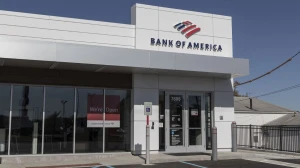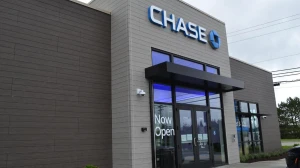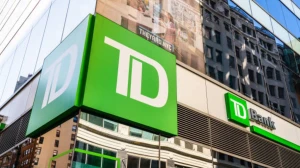
10 Best Banks With No Overdraft Fees in 2023
Several banks, including Citi, Fidelity, Ally Bank, and others, offer no overdraft fees, each with unique features and benefits to cater to your financial needs.
by Surya
Published Sep 14, 2023 | Updated Nov 04, 2023 | 📖 14 min read
On This Page
What is an Overdraft Fee?
An overdraft fee is a charge by a bank when you take out more money from your account than you have in it. When this happens, the bank lends you the extra money temporarily, but they expect you to repay not only the overdraft amount but also the fee, which can sometimes be higher than the amount you overspent.
These fees can add up, so it's important to be aware of your account balance and take steps to avoid them, such as setting up alerts or linking your accounts for backup funds. If you do get hit with an overdraft fee, you can often negotiate with your bank to have it waived or refunded.
Banks With No Overdraft Fees
Citi®
Citi® is a bank that made some changes in June 2022 to help its customers save money. They got rid of fees for things like overdrafts and returned payments on regular checking accounts.
How Citi deals with overdrafts depends on the type of account you have. If you have a Regular Checking account, they might let payments go through even if you don't have enough money, but it's up to them. But with an Access Checking account, they'll say no to transactions if you don't have the money.
Citi still offers overdraft protection for free if you have a savings or money market account with them.
Here are some good things about Citi:
- They don't charge a monthly service fee in the first three months or if you have $250 or more in direct deposits.
- If you have a Regular Checking account and make $250 or more in direct deposits, they'll waive the $2.50 fee for using a non-Citi ATM.
But watch out for these fees:
- Access Checking has a $5 monthly service fee, and Regular Checking has a $15 monthly service fee if you don't meet the conditions to have them waived.
Fidelity
Fidelity has something called a Cash Management account, which is kind of like a checking account. With this account, you can set up overdraft protection for free using money from other Fidelity accounts you have. These accounts can have cash, margin (which is like a credit line), or money market funds.
If you ever make a transfer that would put your Cash Management account in the red, the Cash Manager will automatically move money from one of those other accounts to cover it. They follow a specific order when choosing which account to use. You won't earn interest on this unless they have to use the margin account, but when you put money back into those accounts, it reduces any interest charges.
Here are some good things about Fidelity's Cash Management account:
- You can earn 2.72% on your money.
- There are no fees for having the account, and you don't need to keep a minimum balance.
- Your Cash Management account balance is insured by the FDIC through program banks.
- They'll reimburse you for fees charged by ATMs worldwide.
But remember, you need to have a Fidelity brokerage account to open a Cash Management account.
Betterment
Betterment handles overdrafts in a unique way. Instead of allowing transactions to go through even if you don't have enough money, they tell the seller that there's not enough money and cancel the transaction. You'll need to use a different way to pay for your purchase, but you won't end up with a negative balance.
Here are some good things about Betterment:
- They don't charge any fees for having an account.
- They automatically reimburse you for ATM and foreign transaction fees.
- You can get paper checks if you need them.
- You can earn cash-back rewards when you shop with certain brands.
- You can also have a joint checking account if you want to share it with someone else.
But remember, their checking account doesn't earn interest, and it's not connected to an interest-earning Cash Reserve account.
Ally Bank
Ally Bank is an online-only bank that did away with overdraft fees in 2021 for all its accounts. They offer two ways to handle overdrafts:
Overdraft Transfer Service: You can connect your Ally Bank savings or money market account to your spending account. If you accidentally spend more money than you have in your spending account, Ally will transfer money from your linked account in increments of $100 to cover the overdrawn amount.
CoverDraft Service: This is like a safety net, and it doesn't cost anything. It can cover up to $250 until your next direct deposit, when Ally will settle your account. Most people can use CoverDraft 30 days after putting at least $100 into their spending account. If you have regular direct deposits, you can increase this coverage to $250. However, you have to repay the overdrawn money within 14 days.
Here are some good things about Ally Bank:
- They don't charge any monthly fees.
- If your paycheck is directly deposited, you might get it up to two days early.
- They offer an interest-earning account with an average percentage yield of 0.25%.
But keep in mind that if you use the Overdraft Transfer Service, those transfers count toward the limit of six convenience withdrawals you can make from your savings account in one statement period.
Capital One
Capital One is a bank that has done away with overdraft fees on all its accounts, including 360 Checking. They give you three choices for how to handle overdrafts: You can make them automatically decline any transactions that would cause an overdraft, which means they won't let you spend more money than you have.
You can set up an automatic transfer of money from your savings or money market account to cover overdrafts. Or, you can let Capital One decide whether to approve transactions that would make your account go negative. If you used to be in the Next Day Grace program, you were switched to the No-Fee Overdraft option.
Here are some good things about Capital One:
- They don't charge any fees, and you don't need a minimum balance in your account.
- You can add cash to your account at Walgreens and CVS stores using their mobile app.
- If your paycheck is directly deposited, you might get it up to two days early.
But be aware that their interest rate (APY) is low at 0.10%, which means you won't earn much interest on your money.
SoFi
SoFi offers a high-yield checking account without any overdraft fees. If you have direct deposits of $1,000 or more each month, they can cover overdrafts up to $50 on debit card purchases. Plus, when you set up direct deposit, you also get a savings account that earns 4.50% APY, which means you can earn interest on your money.
Here are some other good things about SoFi:
- You can earn 0.50% APY on your checking account balance.
- They don't require a minimum balance, and there are no monthly fees.
- If your paycheck is directly deposited, you might get it up to two days early.
- When you make debit card purchases, they round up the amounts and put the spare change into your savings account.
- You can get up to 15% back on purchases from certain local businesses.
- There's a bonus for setting up direct deposit.
But be aware that the overdraft coverage is limited to $50, so it won't cover larger overdrafts.
Discover Bank
Discover Bank offers an overdraft protection program that automatically moves money from a linked Discover checking, savings, or money market account if a transaction would make your balance go below $0. This is an optional service and covers ACH, check, and bill-pay transactions.
However, it doesn't cover debit card or ATM transactions, in-store cash back, or transfers you initiate. If any of these transactions would cause an overdraft, you'll get an alert, but the good news is that Discover won't charge you any fees for these overdraft transfers.
Here are some other good things about Discover Bank:
- They don't have any monthly fees or minimum balance requirements.
- You can earn 1% cash back on up to $3,000 in debit card purchases each month.
- They provide free bank checks and free check reorder services.
But keep in mind that if you use their overdraft protection and transfer money from your savings account, those transfers count toward the limit of six convenience withdrawals you can make from your savings account in one statement period.
Wealthfront
Wealthfront doesn't charge any overdraft fees on its Cash Account, which is like a combination checking and savings account. They have a helpful feature that sets a maximum balance for your Cash Account and automatically moves any extra money into your savings. If you ever overdraw your account, you can use the money in your savings to cover it, which can help you avoid overdrafts in the first place.
Here are some other good things about Wealthfront:
- You can earn a high 4.80% annual percentage yield (APY) on your money.
- They don't have any fees.
- If your paycheck is directly deposited, you might get it up to two days early.
- You can make unlimited withdrawals from your account.
- They charge $10 for wire transfers.
But be aware that they have a $2.50 fee for using ATMs that are not in their network, and a $5.95 fee for depositing cash into your account.
Alliant Credit Union
Alliant Credit Union is a place where you can have a checking account without worrying about overdraft fees or non-sufficient funds fees. They give you some options for handling overdrafts:
Overdraft Protection: If you choose to use this, Alliant will automatically move money from your savings account to cover any accidental overdrafts on your checking account. This way, they can help you avoid overdrafts as long as you have enough money in your Alliant Savings or Supplemental Savings account. But keep in mind, it doesn't cover ATM transactions.
Courtesy Pay: This is another way to protect against overdrafts, and it's optional. If you qualify, Alliant will cover checks, electronic payments, and transfers even if you don't have enough savings to cover them. Extended Courtesy Pay also helps with overdrafts on everyday debit card transactions. But remember, you need to pay back the overdrawn amount within 30 days.
Here are some other good things about Alliant Credit Union:
- They don't have any monthly service fees or minimum balance requirements.
- You can earn 0.25% interest (APY) when you make at least one electronic deposit per month.
- They have a network of 80,000 fee-free ATMs, and they'll even rebate up to $20 per month in ATM fees.
But keep in mind that there's a $25 minimum deposit required to open a high-yield checking account online or by phone.
Axos
Axos is an online bank, and they have a few different checking accounts you can pick from. Some of these, like Essential Checking, Rewards Checking, and First Checking, don't have overdraft fees.
If you want to, you can set up overdraft protection. This means you connect a savings account, and Axos can use it to move money into your checking account if you don't have enough to cover a payment. The good thing is, they don't charge you for this if you have one of the eligible checking accounts.
Here are some other good things about Axos:
- They offer various types of checking accounts to choose from.
- They don't have a monthly fee for their accounts.
- You can reach their customer support 24/7.
But their interest rates (APYs) are not very high, so you won't earn much extra money on your deposits.
How Do Overdraft Fees Work?
Overdraft fees are charges that banks impose when you spend more money than you have in your checking account. Let's say you have $100 in your account, and you make a purchase for $120. Without overdraft protection, your bank might still let the transaction go through, but they'll charge you an overdraft fee, which is typically around $35.
So, in this example, your account balance would be -$55 after the purchase, considering the $35 fee. Overdraft fees can quickly add up if you make multiple transactions without enough money in your account, making it important to keep track of your balance or consider overdraft protection options offered by your bank to avoid these costly fees.
Why Do Banks Charge Overdraft Fees?
Banks charge overdraft fees because they provide a service to customers by allowing them to make payments even when they have insufficient funds in their account. This service is essentially a short-term loan provided by the bank, and like any loan, it comes with interest charges. In addition to interest, banks often impose a one-time insufficient funds fee for covering these payments.
Overdraft protection can prevent transactions from being rejected or checks from bouncing, but it typically includes interest and other fees. While overdraft fees can help customers in emergencies, they can also add up quickly, so it's essential to manage finances carefully to avoid them whenever possible.
Why Banks are Eliminating Overdraft Fees?
Banks are eliminating overdraft fees due to increasing pressure from both legislators and consumer advocacy groups. The Overdraft Protection Act of 2021, proposed by former Rep. Carolyn Maloney, aimed to restrict the amount and frequency of overdraft fees that banks could charge. While this bill did not progress through Congress, it raised awareness about the issue.
President Joe Biden has also expressed opposition to such fees and advocated for banning "junk fees." Critics argue that overdraft fees disproportionately affect consumers, especially those who are more vulnerable, and that regulatory intervention may ultimately harm them.
As a result, many banks are moving away from overdraft fees and exploring alternative practices, such as declining transactions that would overdraw accounts or offering overdraft protection services, in response to consumer demand for fair and transparent banking practices.
How Much Do Banks Make in Overdraft Fees?
In the first three quarters of 2022, banks earned a total of $5.8 billion in combined revenue from overdraft and Non-Sufficient Funds (NSF) fees. This amount marked a significant decrease from the $8.6 billion they earned during the same period in 2019. The decline of 33 percent in revenue is likely a result of changes in bank policies, such as some banks eliminating or reducing overdraft fees.
In 2021, a breakdown of overdraft and NSF revenue by specific banks showed that Wells Fargo earned the highest amount at $1.4 billion, followed by Chase Bank at $1.2 billion, Bank of America at $1.1 billion, TD Bank at $477 million, and Truist Bank at $415 million, indicating the significant sums generated by these fees for some financial institutions.
How to Avoid Overdraft Fee?
Avoiding overdraft fees is relatively simple if you follow these steps:
Opt Out of Automatic Overdrafts: When opening a new bank account, choose to opt out of overdraft coverage. This means the bank won't cover transactions that would overdraw your account, saving you from overdraft fees.
Choose an Account with No Overdraft Fees: Consider switching to a bank or credit union that doesn't charge overdraft fees. Some financial institutions, like Capital One, Ally Bank, and Alliant Credit Union, have eliminated these fees.
Set Up Bank Alerts: Configure alerts to notify you when your account balance drops below a certain amount. This way, you'll know when your funds are running low and can avoid overdrafts.
Consider Overdraft Protection: Different from automatic overdrafts, overdraft protection lets you link another account (usually from the same bank) to cover overdrafts. Be aware that some banks may still charge a fee for this service.
Maintain a Cushion Balance: Keep a little extra money in your account to cover unexpected or forgotten charges, such as subscriptions or automatic payments. This cushion can help you avoid overdraft fees by ensuring you always have enough to cover your expenses.
How to Get Overdraft Fees Refunded?
To get overdraft fees refunded, the most straightforward approach is to contact your bank's customer service department. Reach out to them via phone or email and explain the situation. Be polite and honest about the circumstances that led to the overdraft, whether it was due to a delayed paycheck or an unexpected automatic subscription renewal.
Many banks are willing to refund overdraft fees as a goodwill gesture, especially if you have a good history of managing your account responsibly. It's essential to be courteous and patient during the conversation with the customer service representative, as this can increase your chances of a successful fee refund
Banks With No Overdraft Fees - FAQs
1. Which banks offer accounts with no overdraft fees?
Ally Bank, Capital One 360, Chime, and Alliant Credit Union are some banks that offer accounts with no overdraft fees.
2. Do banks with no overdraft fees charge monthly fees?
Many of these banks do not charge monthly fees for their accounts.
3. Is overdraft protection available at banks without overdraft fees?
Some banks without overdraft fees offer overdraft protection, but it's often optional and may come with its own terms.
4. Can I still overdraft my account at banks without overdraft fees?
Generally, banks without overdraft fees won't allow your account to go negative, but they may decline transactions that would overdraw your account.
5. Are there any downsides to using banks without overdraft fees?
While avoiding overdraft fees is a significant benefit, these banks may have lower interest rates on savings accounts or other limitations you should consider.




